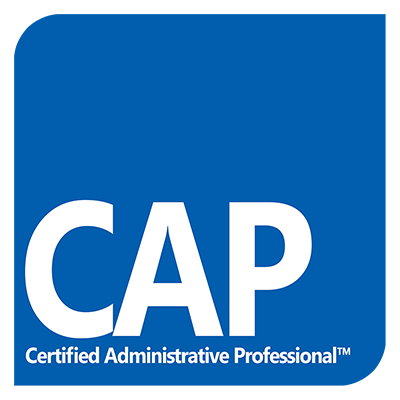
Staying informed about the latest trends in the administrative profession is crucial for maintaining a competitive edge and adapting to the ever-evolving workplace environment. The Institute of Certified Administrative Professionals (ICAP) is dedicated to providing our members with up-to-date insights and analyses on the key trends shaping the industry. Here, we explore some of the most significant trends impacting administrative professionals today.
1. Digital Transformation
The rapid advancement of technology continues to reshape the administrative landscape. Administrative professionals are increasingly expected to be proficient in a variety of digital tools and platforms, including cloud-based software, project management applications, and communication tools. Embracing digital transformation can lead to increased efficiency, better collaboration, and streamlined workflows.
2. Remote Work and Hybrid Models
The rise of remote work and hybrid work models has become a permanent fixture in many organizations. Administrative professionals must adapt to new ways of managing tasks, coordinating with teams, and maintaining productivity in virtual environments. This trend highlights the importance of mastering remote work technologies and developing strong virtual communication skills.
3. Focus on Soft Skills
While technical skills remain important, there is a growing emphasis on soft skills such as communication, emotional intelligence, and adaptability. These skills are essential for fostering positive workplace relationships, managing conflicts, and navigating complex organizational dynamics. Continuous development of soft skills can significantly enhance an administrative professional’s effectiveness and career prospects.
4. Emphasis on Professional Development
Organizations are increasingly recognizing the value of continuous learning and professional development. Administrative professionals are encouraged to pursue certifications, attend workshops, and engage in lifelong learning to stay relevant and advance their careers. ICAP provides numerous opportunities for professional growth, including training programs and certification courses.
5. Automation and Artificial Intelligence
Automation and artificial intelligence (AI) are transforming administrative tasks by automating routine processes and providing data-driven insights. Administrative professionals must stay informed about these technologies and understand how to leverage them to improve efficiency and decision-making. This trend also underscores the need for continuous upskilling to work alongside emerging technologies.
6. Enhanced Focus on Diversity and Inclusion
Diversity and inclusion have become critical priorities for organizations across industries. Administrative professionals play a key role in fostering inclusive workplace cultures by supporting diverse teams, promoting inclusive practices, and ensuring equitable access to opportunities. Understanding and championing diversity initiatives can enhance organizational cohesion and innovation.
7. Wellness and Work-Life Balance
The importance of employee wellness and work-life balance has gained significant attention. Organizations are implementing programs and policies to support the well-being of their employees. Administrative professionals can contribute by promoting wellness initiatives, organizing health-focused events, and advocating for a healthy work environment.
8. Sustainability and Corporate Social Responsibility
Sustainability and corporate social responsibility (CSR) are increasingly integral to organizational strategies. Administrative professionals can support these efforts by implementing eco-friendly practices, organizing CSR activities, and ensuring that office operations align with sustainability goals. This trend reflects a broader commitment to ethical and responsible business practices.
9. Data-Driven Decision Making
The ability to analyze and interpret data is becoming essential for administrative professionals. Data-driven decision-making involves using data insights to inform strategies, optimize processes, and achieve organizational objectives. Familiarity with data analysis tools and techniques can enhance an administrative professional’s ability to contribute to strategic planning.
10. Evolving Role of Administrative Professionals
The role of administrative professionals is continually evolving, with increased responsibilities and strategic involvement in organizational operations. Professionals are taking on more complex tasks, including project management, strategic planning, and executive support. Staying adaptable and open to new challenges is crucial for thriving in this dynamic environment.
By staying abreast of these industry trends, administrative professionals can proactively navigate changes, seize new opportunities, and contribute to the success of their organizations. ICAP is committed to supporting our members with the resources and knowledge needed to excel in this rapidly changing landscape.
